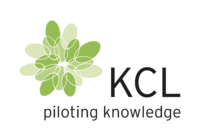Understanding microfibrillated cellulose (MFC)
Microfibrillated cellulose (MFC) is a highly versatile biomaterial derived from plant fibres. It is produced by breaking down cellulose fibres into a network of micro-sized fibrils. This process results in a material that has exceptional strength, flexibility, and bonding properties. At KCL, our MFC is made from industrial agro sidestreams, specifically sugar beet pulp, which is a by-product of the sugar industry. By removing lignin and hemicellulose and using purely mechanical means, we create a high-quality MFC with a low carbon footprint.
MFC is gaining traction in various industries due to its unique properties. In the paper production sector, it offers numerous advantages, including cost reduction, improved product quality, and enhanced sustainability. Understanding how MFC can be integrated into your paper production process is crucial for leveraging these benefits.
In this blog post, we will explore how MFC can help reduce costs in paper production, focusing on raw material savings, enhanced paper strength and quality, and sustainability benefits. We will also provide insights into implementing MFC in your production process.
The cost implications of traditional paper production
Traditional paper production relies heavily on wood pulp, which is both resource-intensive and costly. The process involves significant energy consumption, chemical usage, and water requirements. Additionally, the environmental impact of deforestation and the carbon footprint associated with wood pulp production are considerable concerns.
Moreover, the fluctuating prices of raw materials can lead to unpredictable production costs. This volatility can affect the profitability and sustainability of paper manufacturing operations. As a result, the industry is constantly seeking ways to optimise production processes and reduce costs.
One of the primary challenges in traditional paper production is maintaining the balance between cost efficiency and product quality. High-quality paper often requires more raw materials and energy, further driving up costs. This is where MFC can play a transformative role.
How MFC can reduce raw material costs
Integrating MFC into your paper production process can lead to substantial raw material cost savings. MFC’s unique properties allow it to enhance the strength and stiffness of paper products, enabling manufacturers to use less raw material without compromising on quality. This reduction in material usage directly translates to cost savings.
For instance, by incorporating MFC, paper producers can achieve the desired paper strength and durability with a lower basis weight. This means that less pulp is required to produce the same amount of paper, resulting in significant cost reductions. Additionally, MFC can act as a natural binder in coating formulations, replacing more expensive synthetic latexes and other barrier materials.
At KCL, our MFC is designed to fulfil the requirements of various applications, ensuring that it can be seamlessly integrated into existing production processes. By leveraging our expertise in nanocellulose materials, we help paper manufacturers achieve cost efficiency and improved product performance.
Enhancing paper strength and quality with MFC
One of the standout benefits of MFC is its ability to enhance the strength and quality of paper products. The micro-sized fibrils in MFC create a dense network that improves the bonding between fibres, resulting in stronger and more durable paper. This enhanced strength allows for the production of lighter-weight paper without sacrificing performance.
In addition to strength, MFC also improves the surface properties of paper. It can enhance smoothness, printability, and barrier properties, making the paper more suitable for a wide range of applications. This versatility allows manufacturers to produce high-quality paper products that meet the demands of various markets.
By incorporating MFC, paper producers can achieve a competitive edge in terms of product quality. The improved strength and surface properties can lead to higher customer satisfaction and increased market share. Furthermore, the ability to produce lighter-weight paper can result in cost savings in transportation and logistics.
Sustainability benefits and environmental impact of MFC
Sustainability is a key consideration in modern paper production, and MFC offers significant environmental benefits. As mentioned earlier, our MFC is derived from industrial agro sidestreams, specifically sugar beet pulp. This utilisation of by-products reduces waste and promotes a circular economy.
The production process of MFC at KCL is energy-efficient and has a low carbon footprint. By using mechanical means to fibrillate the cellulose, we minimise the environmental impact compared to traditional chemical processes. This aligns with the growing demand for sustainable and eco-friendly materials in the paper industry.
Incorporating MFC into paper production can also contribute to reduced deforestation and conservation of natural resources. By using less wood pulp and relying on renewable agro-based materials, paper manufacturers can lower their environmental footprint and support sustainable practices.
Implementing MFC in your paper production process
Integrating MFC into your paper production process requires careful planning and consideration. The first step is to evaluate the specific requirements of your production line and identify the areas where MFC can provide the most significant benefits. This may involve conducting trials and testing to determine the optimal dosage and application methods.
At KCL, we offer comprehensive support for implementing MFC in your production process. Our unique piloting platform and laboratory services can assist in product development and optimisation. We work closely with our customers to ensure a seamless transition and maximise the benefits of MFC integration.
By leveraging our expertise and resources, you can achieve cost reduction, improved product quality, and enhanced sustainability in your paper production. Contact us today to learn more about how MFC can transform your operations and drive efficiency.
